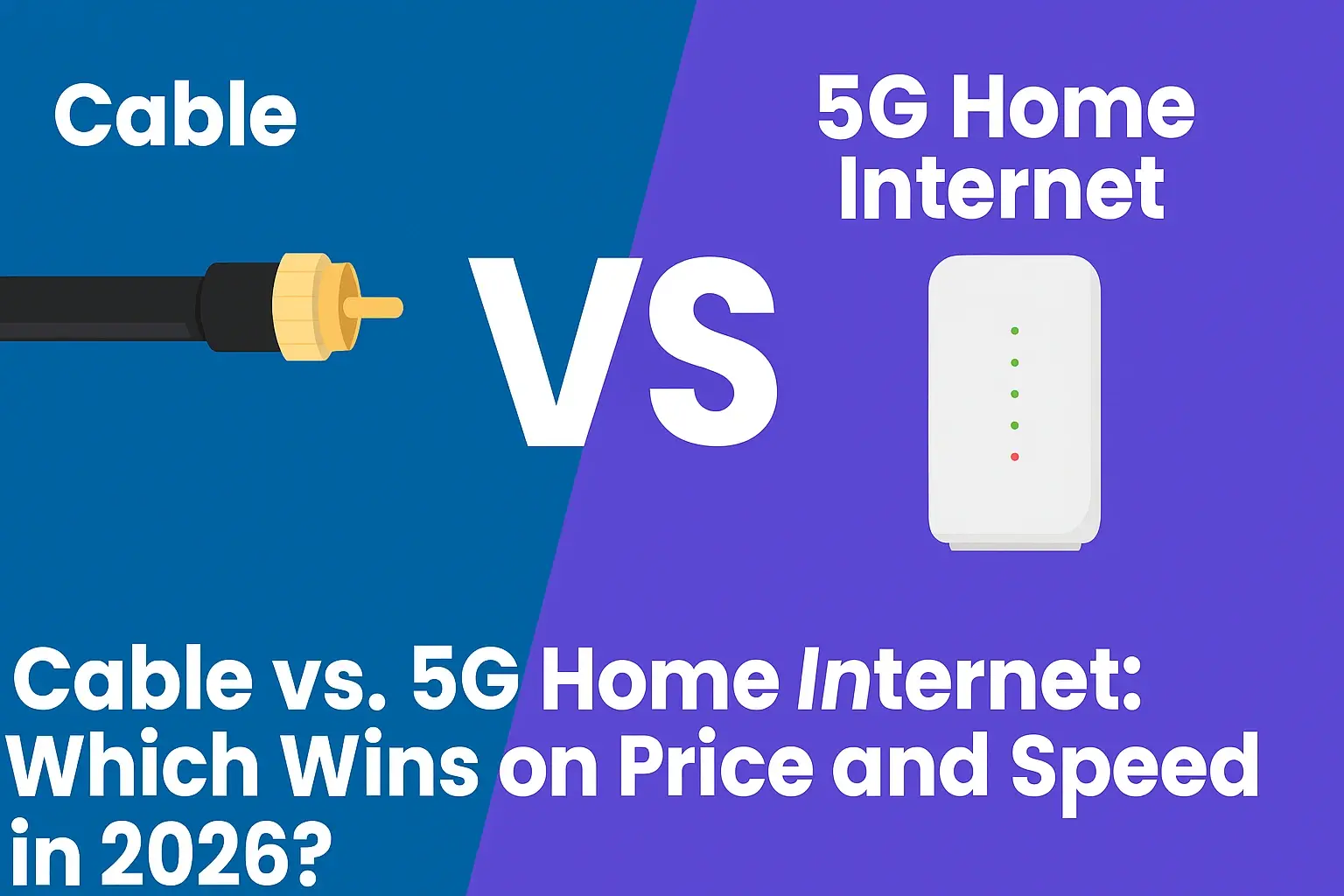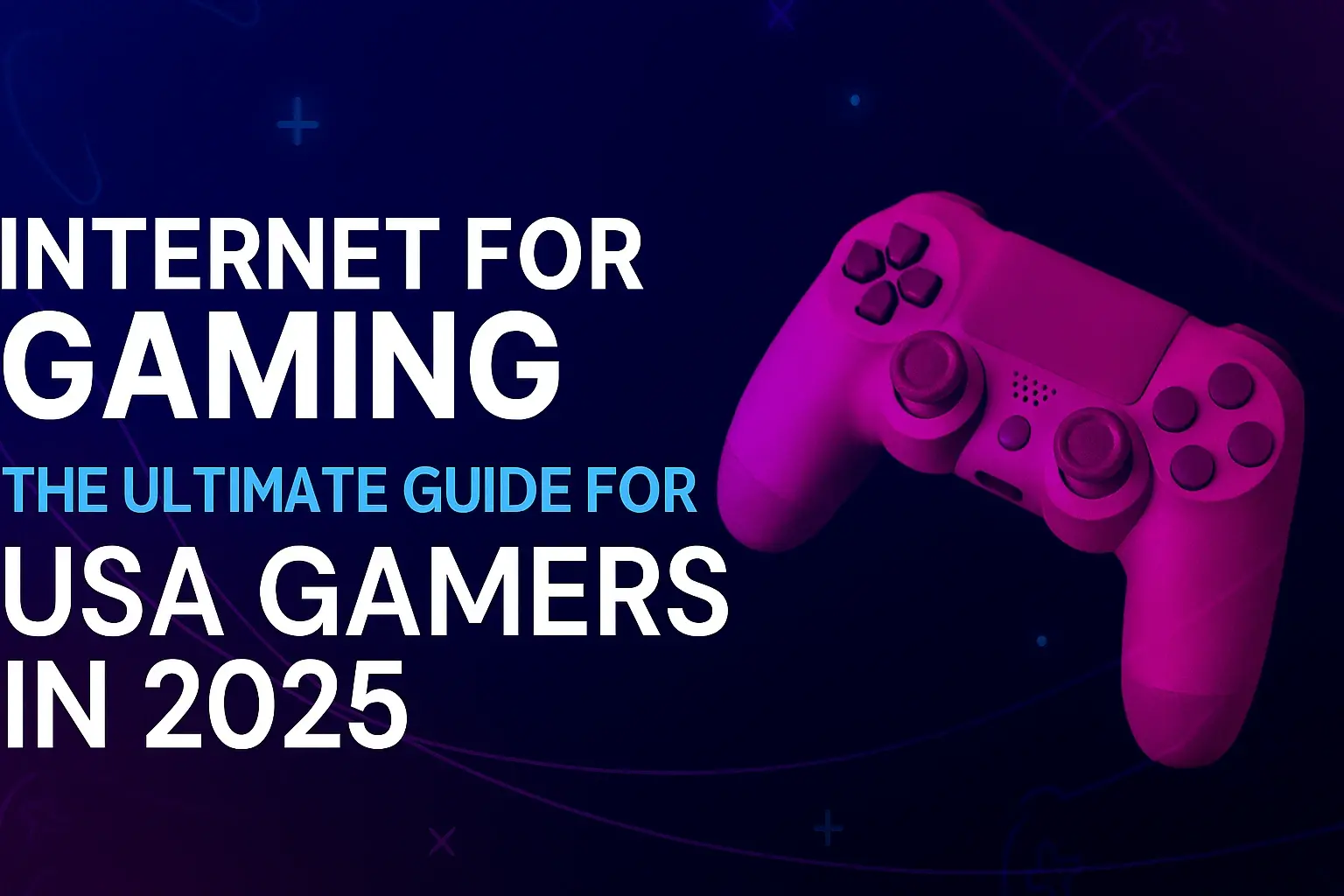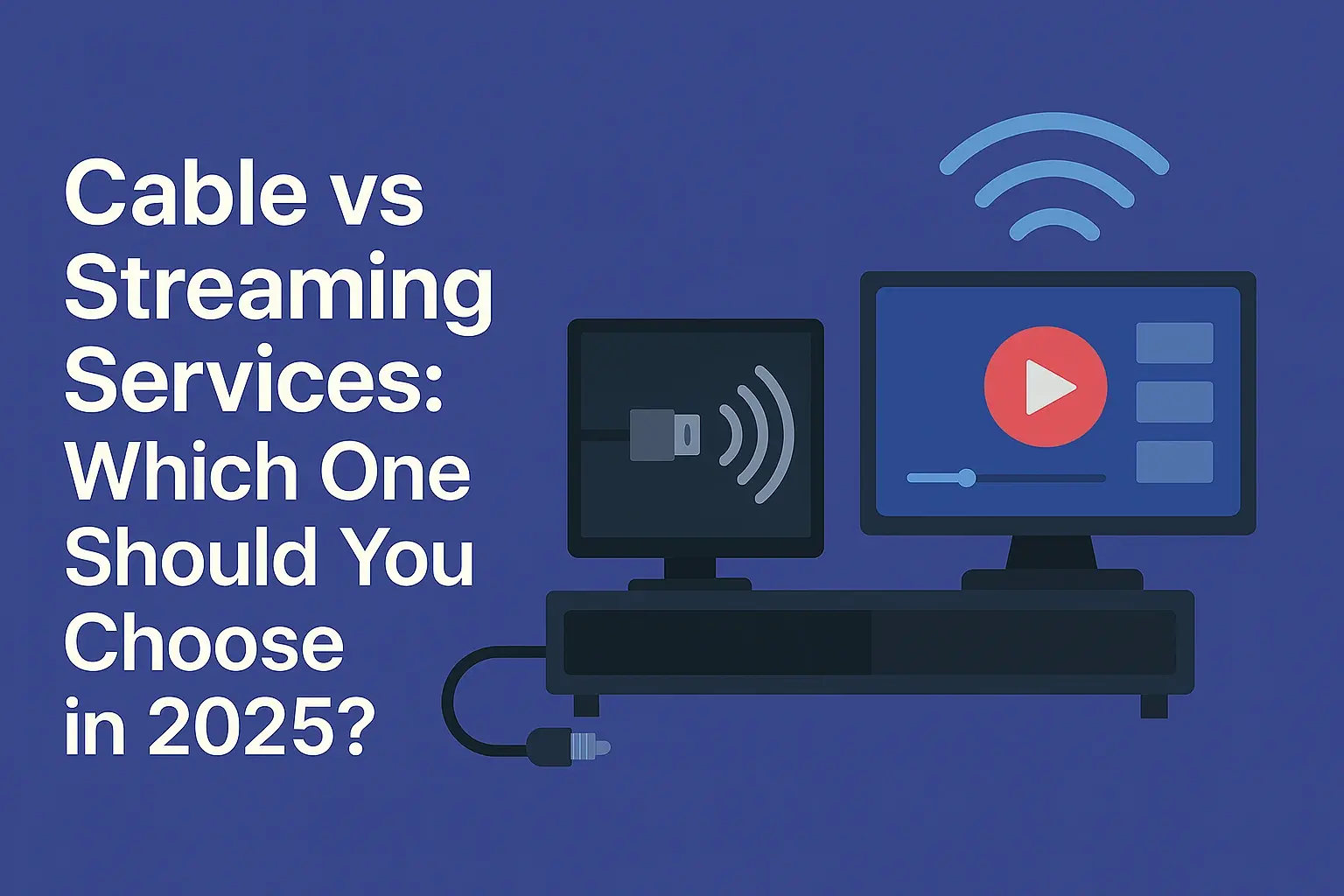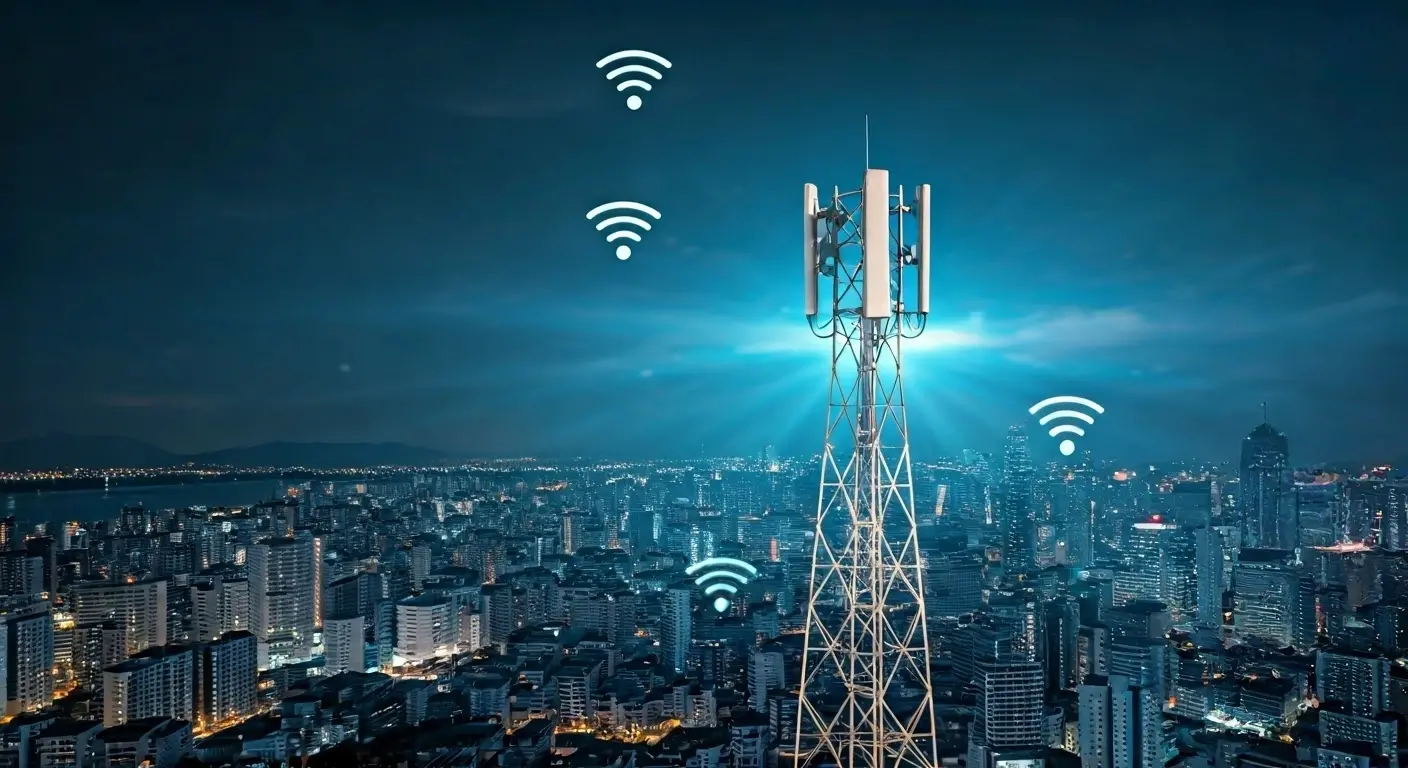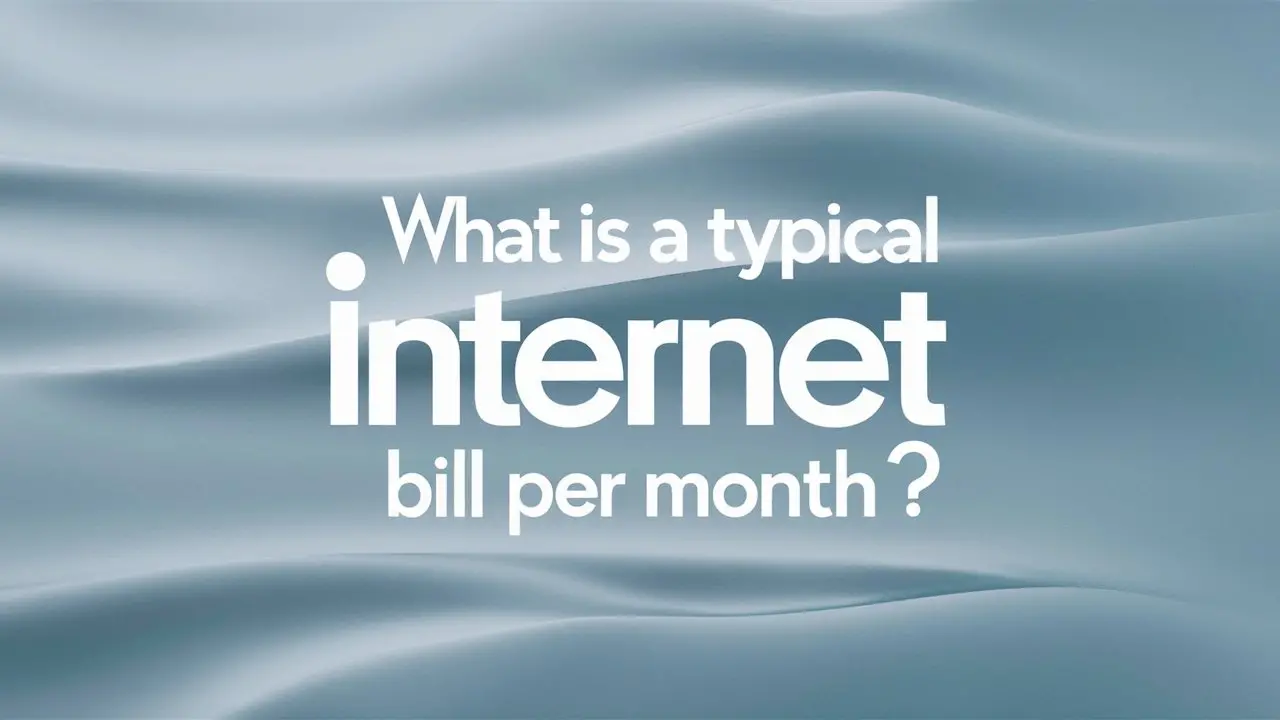
It is clear today, with the fast-paced lifestyle, that people cannot survive without a steady Internet connection. Starting from browsing social media platforms, and even watching movies, using it to make video calls or for shopping, listening to our best music, or even learning something new. However, with the booming internet connection services, the question that arises is what a normal internet bill should entail. Now, in this post, we are going to focus on what makes your internet bill and how much you will spend on a monthly internet service.
Factors Affecting Your Internet Bill:
1. Internet Service Provider (ISP).
When thinking about the implicating scenario of having a fixed monthly internet bill, the first factor one is required to assess is the Internet Service Provider. Now there are so many ISPs operating in the market, and the prices for their services also differ significantly. Some Internet service providers are cheap, while others provide a convenient Internet connection and high connection speeds. Also, it is important to consider the fact that some ISPs may levy some charges that are associated with equipment and installation, among others.
2. Connection Type
Another factor that relates closely to the monthly bill is the kind of internet connection that one opts for. There are four main types of connections: Dial-up, ADSL, Hybrid, Cable, and Fiber. Dial-up is the slowest connection method one could ever implement, which makes it also the most outdated and the least costly. Digital subscriber lines and cables are somewhat fast and are the most common connection types, but they depend on factors such as the distance from the provider’s modem or the condition of the wiring used. Wire-line broadband connections, such as fiber optic connections, are relatively faster with the least interference but are most costly.
3. Data Caps and Limits
Many internet service providers will give you the privilege to use a particular amount of data in a month, and if you surpass the limit, you’ll be required to pay some amount of cash. Internet service providers sometimes use data caps, and people should first find out where they live if the ISP has such policies and whether they will be charged for going beyond the limit. Since the internet has become a necessity in almost every person’s life, you would benefit from paying extra cash and subscribing to an unlimited data plan to avoid huge amounts of charges on your bill.
4. Plan Speeds
Internet speed is also among the things whose amount can affect your monthly payment. As one will observe, the faster the speed of a GPRS connection, the more expensive it will be. Dependingg on one’s use of the internet, you will need to choose how much speed you want. If you are only using the Internet for simple things like surfing the web and checking email – – this might do just fine with a slower speed. Nonetheless, if you are downloading movies on a gaming console or using multiple devices simultaneously, you might be required to opt for a higher internet speed for a smoother experience.
5. Additional Fees
As if paying for the Internet service, the extra charges may apply upon billing. While some companies demand a rental fee for their modem, others expect you to buy your modem and router separately. This also depends on the ISP of your choice since there can also be charges for installation, while with others, there may be an activation or setup fee to be paid to activate the account. Bear these extra charges in mind when planning for your monthly internet fee.
Average Monthly Internet Bills:
The survey conducted by Leichtman Research Group in 2019 shows that the country’s average monthly broadband price is $60 on average. This can be significantly different, based on where you are, and with which specific Internet Service Provider. For instance, in more regions where there are many ISPs, you should be able to find an offer as low as $20 monthly. While in rural areas, there are limited ISPs, and for you to get a reasonable connection, you might have to pay $100 or even more.
The internet plans with the lowest prices can be obtained from Spectrum, Xfinity, and Cox Communications ISPs. These companies provide attractive packages of Internet services together with other utilities like cable television and home telephone, which makes them suitable for cutting down the amount of money spent monthly.
Other ISPs such as Google Fiber, AT&T Fiber, and Verizon Fios, on the other hand, provide among the highest internet speeds for a relatively higher price. These plans range from $70-150 monthly; however, for a large family that is always online or multiple device users, the speeds and connections will justify the costs.
Tips for Keeping Your Internet Bill Low:
- Shop Around: Always look for more than one ISP you come across. There is always a provider that offers the right package charges and speed for the services you need, so be a little patient and try to compare the different services being offered.
- Consider Bundles: As stated before, several ISPs give special offers where the customer pays for multiple services, such as cable TV and home phone connection, through one bill. These are, at times, cheaper to obtain than acquiring each service individually.
- Opt for a Slower Speed: If you don’t need to have a high-speed connection, then you may have to consider having a slower connection. This is possible while reducing your monthly bill charge and offering you a suitable connection for simple browsing and emailing.
- Watch Out for Data Caps: If you are active on the Internet, then perhaps now is the time to look for an ISP with an unlimited traffic plan so as not to receive unpleasant surprises on the bill.
- Negotiate or Ask for Discounts: Most internet service providers out there will be willing to accept lower initial payments from their customers or offer them a rebate. Do not forget to wonder whether there is a good offer that they are going to provide to you, or if there is a possibility to reduce the monthly payments.
Conclusion:
However, there are some that you would need to pay for, depending on your location, type of connection, speed of your plan, and extra charges. When you take the time and look for a good package, there is always a cheap deal that you can subscribe to for getting an internet connection. Do not forget about additional charges, and be careful with data consumption for the same reason. Do not worry, it does not take much effort to stumble upon an internet service that will suit your financial possibilities as well as your free time.
Dial (855) 210-8090 to Get an Internet Connection Today!
FAQs:
1. How much does the average person pay for internet monthly?
Most households in the U.S. pay between $50 and $100 per month for internet service. The exact cost depends on your location, internet speed, and the provider. Basic plans may start as low as $30–$40, while high-speed fiber plans or rural satellite options can exceed $100.
2. Why do internet prices vary so much?
Internet costs vary due to factors such as speed, data caps, availability of providers in your area, equipment rental, installation fees, and whether the service is bundled with TV or phone. Urban areas with more provider competition tend to have lower prices than rural or underserved regions.
3. What is the cheapest internet plan available?
Some providers offer basic internet plans starting at $20 to $30 per month, often with speeds under 100 Mbps. These are best for light usage like browsing and emails. Low-income households may also qualify for government-subsidized plans under programs like the Affordable Connectivity Program (ACP).
4. Are there hidden fees in internet bills?
Yes, many internet bills include hidden or additional fees like modem/router rental fees, installation charges, early termination fees, or regional sports fees (if bundled with TV). These extras can add $10–$30+ to your monthly bill.
5. Is it cheaper to bundle internet with TV or phone?
Bundling can sometimes reduce your total monthly cost, especially during promotional periods. However, bundled plans can also include services you don’t need, so compare individual and bundle pricing carefully to ensure it’s worth it long term.
6. How much should I expect to pay for 1 Gbps internet?
Gigabit internet plans typically cost between $70 and $100+ per month, depending on the provider. Fiber-optic services like AT&T Fiber, Verizon Fios, and Google Fiber offer competitive rates and higher reliability at this speed tier.
7. Does equipment rental affect my bill?
Yes, if you rent a modem or router from your provider, expect to pay an additional $10 to $15 per month. You can often save in the long run by purchasing your compatible equipment.
8. Do internet prices increase after the first year?
Many internet providers offer promotional rates that last for 6 to 12 months. After that period, your bill can increase by $10 to $30 per month. Always read the fine print and ask about regular pricing before signing up.
9. Are taxes and fees included in the advertised internet price?
Usually not. The advertised price is often before taxes and surcharges. Once those are added, your monthly bill may be $5 to $20 more than expected. It's a good idea to ask your provider for a breakdown of the full monthly cost.
10. Can I lower my internet bill?
Yes, you can often lower your bill by negotiating with your provider, switching to a lower-tier plan, buying your equipment, or taking advantage of promotional offers. Calling to cancel may also trigger retention deals that reduce your cost.
